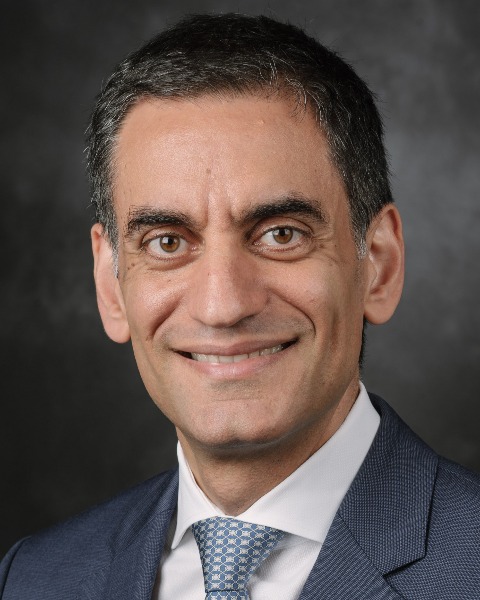Oncology: Testis/Penis
052IC - Testis Cancer: Stage-by-Stage Management - American Urological Association Guidelines Update
-
AS
Andrew Stephenson, MD, MBA
Professor
Rush University -

Jose Karam, MD, FACS
Associate Professor of Urology and Translational Molecular Pathology
MD Anderson Cancer Center -

Kelvin Moses, MD, PHD
Associate Professor
Vanderbilt University Medical Center -

Sarah Psutka, MD
University of Washington
Instructional Course Director(s)
Instructional Course Faculty(s)
Course Description: The course will cover topics related to the diagnosis and management of early-stage and advanced germ cell tumor using the American Urological Association Treatment Guidelines for Testis Cancer as the framework for discussion with case presentations by a panel of recognized experts and focused didactic presentations to bring the “guidelines to life” and tie in evidence-based guidelines to real-world clinical cases. Urologists are frequently the initial health professional involved in the diagnosis and management of germ cell tumor and are frequently involved in the management of these patients at all disease stages. Thus, it is essential that practicing urologists have a firm grasp on the principles of management of these patients and are familiar with best practice patterns based on the most recent evidence. The AUA Guidelines on Testis Cancer were recently updated to provide such a resource to urologists in community and academic settings. Germ cell tumors are relatively rare cancers, and the outcome of patients may be highly dependent on nuances in management. Likewise, limited treatment-related morbidity is critical given the long life expectancy of this patient population. As such, an educational course that highlights recent evidence-based practice guidelines with valuable context provided by a panel of experts discussing real-world cases and focused didactic state-of-the-art lectures on management is anticipated to have a major impact on building urologists’ fund of knowledge to enhance patient outcomes. All stages of disease will be covered:
(1) Diagnosis of testicular masses including appropriate imaging, tests and interventions (including orchiectomy and testis-sparing techniques)
(2) Management of clinical stage I seminoma and nonseminoma, including appropriate risk stratification, selection of patients for surveillance and active treatment, and appropriate surveillance protocols
(3) Management of clinical stage IIA and IIB seminoma and nonseminoma, including appropriate assessment of post-orchiectomy serum tumor markers and imaging, and active treatment options including primary chemotherapy, retroperitoneal lymph node dissection and radiation therapy
(4) Oncologic principles for performing retroperitoneal lymph node dissection, nerve-sparing techniques and appropriate use of adjuvant chemotherapy
(5) Future directions including the role of miRNA as a new biomarker and robotic retroperitoneal lymph node dissection
Learning Objectives:
- Identify the appropriate diagnostic workup and differential diagnosis of the patient who presents with a testicular mass, including appropriate use of imaging (ultrasound and MRI) and serum tumor markers, and the appropriate indications for radical orchiectomy and testis-sparing surgery, including post-treatment considerations for germ cell neoplasia in situ.
- Describe the importance of post-orchiectomy serum tumor markers and CT/MRI/chest radiography imaging in the staging of patients with seminoma and nonseminomatous germ cell tumor and as the basis for subsequent treatment decisions, including repeat imaging and/or serum tumor markers for patients with equivocal findings.
- Identify the treatment options for patients with clinical stage I seminoma, including surveillance, radiation therapy and chemotherapy. Discuss factors used in risk stratification, treatment selection and evidence-based surveillance protocols.
- Explain the treatment options for patients with clinical stage I nonseminomatous germ cell tumor, including surveillance, radiation therapy and chemotherapy. Identify factors used in risk stratification, treatment selection and evidence-based surveillance protocols.
- Explain the management of clinical stage IIA and IIB seminoma and nonseminoma, including appropriate assessment of post-orchiectomy serum tumor markers and imaging, and active treatment options including primary chemotherapy, retroperitoneal lymph node dissection and radiation therapy
- Discuss the oncologic principles and technical aspects of retroperitoneal lymph node dissections, including appropriate template dissections and use of nerve sparing.
- Distinguish the impact of emerging technologies on the management of patients with germ cell tumor, including novel circulating biomarkers (miRNA) and robotic approaches for retroperitoneal lymph node dissection.
- Identify the impact of testicular cancer diagnosis and treatment on quality of life (including gonadal function and fertility), treatment-related side effects and mental/emotional functioning.
